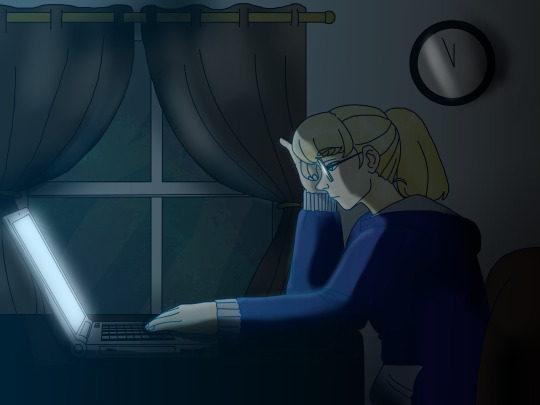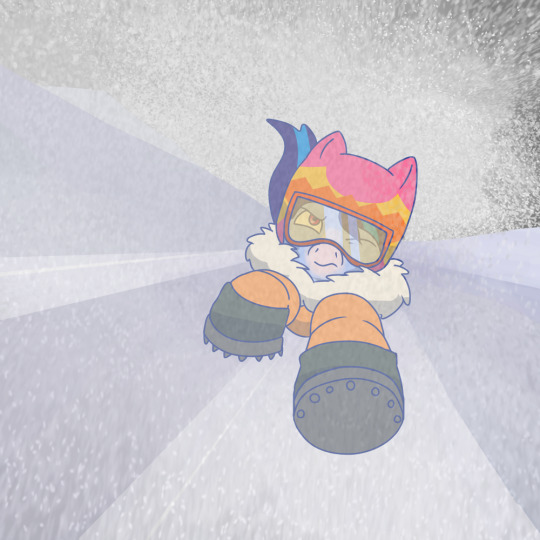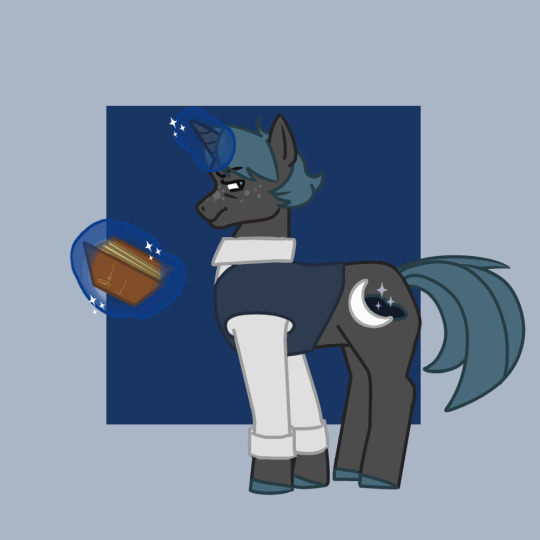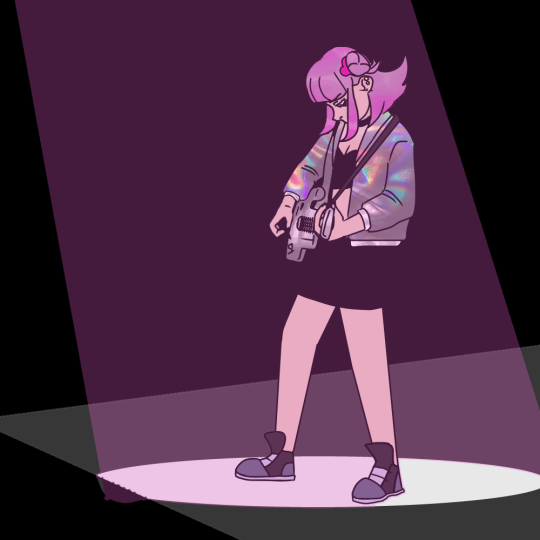Text
test
Compulsory Sexuality
This post is for the July Carnival of Aces.
Introduction
In this post I will be working from the definition of compulsory sexuality proposed by Lisa Millbank:
Compulsory sexuality refers to a set of social attitudes, institutions and practices which hold and enforce the belief that everyone should have or want to have frequent sex (of a socially approved kind).
Millbank provides a thorough discussion of many aspects of compulsory sexuality, most of which are beyond the scope of my post, so I encourage readers who are interested in serious feminist discourse to read her whole post.
Millbank notes:
[I]t seems clear that compulsory sexuality in its capacity as assumed universal sexuality (that everyone must be sexual) marginalises and erases asexual identities. If everyone is sexual then asexual people do not exist, or have simply not yet found the right context in which to be sexual. [Emphasis in original]
Asexuality is a sexual orientation defined by lack of sexual attraction. Asexuality is also a sexual identity. Not all people who are asexual by orientation will choose to identify as asexual. To me, the choice of an asexual identification is a statement about how we relate to the larger heterosexual world and also how we relate to other groups that experience different kinds of sexual attraction. Asexuals are not necessarily “not sexual” (some asexuals may be sexually active) but our choice of identity is a statement that we do not relate to sexuality in the same way everybody else does. To say that there is such a thing as “compulsory sexuality” is to state that we feel our way of relating to sexuality is not acknowledged, understood, or accepted by the larger society and that we feel pressured by that society to adopt norms of sexuality that do not make room for our lived experiences.
Compulsory heterosexuality and the context of asexuality
As Millbank points out, in our society compulsory sexuality is specifically compulsory heterosexuality (also known as heteronormativity). Non-heterosexual orientations, identities, and behaviors are socially disapproved to varying degrees and are not considered equal to, nor are equally privileged as, heterosexual orientations, identities, and behaviors.
However, it is not as simple as gay/lesbian vs. straight. One of the topics I post a lot about on this blog is biphobia. Biphobia is prejudice or hatred against bisexuals that is specific to their bisexuality. Notable features of biphobia include erasure of bisexual identity, marginalization of bisexual individuals from both straight and gay/lesbian spaces, and stereotypes of bisexuals as being confused, greedy, or promiscuous because they are attracted to more than one sex or gender. If you’re not familiar with biphobia or would like to learn more about how it works, I encourage you to read my posts on this topic.
In recognizing biphobia as a real phenomenon, we are acknowledging that compulsory heterosexuality not only disadvantages homosexuality but that it also has embedded in it the assumption that all people should be attracted to only one sex or gender (monosexuality). When bisexuals are true to themselves by having partners of more than one sex or gender or by otherwise expressing or demonstrating the multiple nature of their sexual attractions, they are still disadvantaged against and marginalized by the heterosexual majority because they are not monosexual. To put this another way, choice of bisexual identity is in part a statement that a person does not relate to sexuality in the same way that monosexuals do. Neither heterosexuality nor homosexuality makes room for this person’s lived experience of their own sexuality.
Talking about the assumption of monosexuality can be controversial. Since gay and lesbian people are monosexual, it is possible for them to engage in biphobia, that is, to be prejudiced against bisexuals in the ways mentioned above. This does not mean that bisexuals are “more oppressed” than gay or lesbian people, nor does it imply that gay and lesbian people are equally privileged to heterosexuals. It simply means that there are multiple ways in which heterosexuality is privileged and that some of these affect gay and lesbian people more and some affect bisexuals more. Because there are multiple systems of dominance, almost everybody is privileged in some way compared to some other group of people, even if they are disadvantaged in many ways compared to majority groups.
This brings us back to asexuality. I use the term “acephobia” to refer to prejudice against asexuals that is specific to our asexuality. Some people use the term asexophobia instead; since the obvious parallel formation to homophobia and biphobia, aphobia, is ambiguous in meaning, we need a different word. Some manifestations of acephobia include erasure of asexual identity, marginalization of asexuals from heterosexual and LGBT spaces, and stereotypes of asexuals as confused, prudish, emotionally frigid, and similar.
In recognizing acephobia as a real phenomenon, we are acknowledging that compulsory heterosexuality not only disadvantages homosexuality and bisexuality (note that asexuality is actually a form of non-monosexuality; neither “multiple” nor “none” is equal to one), but that it also has embedded in it the assumption that all people should be sexually attracted to somebody. When asexuals are true to ourselves by not having sexual partners or by otherwise expressing or demonstrating our lack of sexual attraction, we are still disadvantaged against and marginalized by the heterosexual majority because we are not sexual in a recognized way.
Talking about acephobia is even more controversial than talking about biphobia. Since gay, lesbian, and bisexual people are all sexual in a recognized way (experiencing sexual attraction), it is possible for them to engage in acephobia and to be prejudiced against asexuals. This does not mean that asexuals are “more oppressed” than gay, lesbian, and bisexual people, or that gay, lesbian, and bisexual people are equally privileged to heterosexuals. It simply means that there are multiple ways in which heterosexuality is privileged and that some of these affect gay and lesbian people more, some affect bisexuals more, and some affect asexuals more.
This finally brings us back to the question of compulsory sexuality. While gay and lesbian people may focus their critiques on the privileging of heterosexual orientation, identity, and behavior (since this is what affects them most) and bisexuals may focus their critiques on the assumption of monosexuality (since this may be what affects them most), asexuals may focus our critiques on compulsory sexuality because this is often what affects us most. Again, this does not mean that any of these are more or less important than the others, nor does a focus on the area that affects you the most mean that you deny the other areas. By each of us working against the aspects of compulsory heterosexuality that affect us most, together we can tackle all of its manifestations and be successful in overturning this harmful social system.
Compulsory sexuality and asexual experience
So what does compulsory sexuality mean for asexuals? Above, I said many asexuals feel that
our way of relating to sexuality is not acknowledged, understood, or accepted by the larger society and that we feel pressured by that society to adopt norms of sexuality that do not make room for our lived experiences.
While each individual person may experience this differently or give emphasis to different elements of what they experience, and remembering again that some asexuals are sexually active, Millbank’s definition of compulsory sexuality as “the belief that everyone should have or want to have frequent sex” is a view shared by many asexuals.
An excellent post on this topic is The Culture of Hypersexuality and the Erasure of Asexuals and Nonsexual Love by outlawroad. I recommend reading the whole post, but I will share a few excerpts here:
…Everyone who has entered or completed puberty is assumed to be sexually active and interested in sex because that is what the majority considers to be exclusively and definitively “normal.” …
…Openly asexual characters in media are almost nonexistent. When a character is implied to be asexual, there is also an ongoing problem of characterizing them as sociopathic, socially awkward, unattractive, strange, cold, distant, uninterested in love or romance or friendship, and finally, as “curable” by the magical healing properties of sex…
…The whole of this situation often leads to feelings of extreme isolation, loneliness, depression, hopelessness, despair, anger, resentment, and betrayal in people who are sexually inactive (especially asexuals) and/or aromantic…
…Because we are socially conditioned as a society to view all emotional connection and romantic feelings as being inherently sexual in nature, this can also lead to a person’s confusion about their own feelings and relationships with others…
Thus, many asexuals feel a profound sense of exclusion from social norms about sexuality, we may be regarded by others who know our sexual orientation (or who see its expression in our conduct or words) as abnormal, even as “freaks”, and we may come to feel ourselves “broken” or damaged in some way. These feelings, incidentally, are compounded by the invisibility of asexuality. I personally was 31 years old when I first learned that asexuality existed. All the time before that, I thought that my lack of sexual attraction and lack of interest in sex was just something strange about me. To feel both alienated and alone can be a terrible experience for some people, especially young people.
Compulsory sexuality as a feminist issue
Compulsory sexuality is also something that is gendered. Our society expects that every person will fit into one of the two allowed gender roles, female and male. Society enforces beliefs about how these genders are allowed to act, even how they are presumed to be, and these beliefs include expectations about sexuality. Male Asexuality and Its Challenge to Masculinity by The Thinking Asexual explores the expectations placed on men (defined for the purpose of this essay as those assigned by society to the male gender role) in regard to sexual activity and how asexuality goes against these norms.
The situation for women (defined for the purpose of this essay as those assigned by society to the female gender role) is more complex and I will explore this topic for the remainder of this post. The trick is that there are two different sets of expectations for women when it comes to sexuality. This is often known as the virgin-whore dichotomy.
The virgin-whore dichotomy is often presented as “all women are expected to be virgins, and if you’re not a virgin you’re treated as a whore” but it is a lot more complex than that. Some women are expected to be virgins and in our society these are typically white, middle-class or upper-class women. Women of color and working-class or poor women are often depicted as hypersexualized and may find that men (especially white, middle-class or upper-class men) expect them to be sexually available whenever these men want. It is also worth noting that while certain classes of women may be expected to be virgins, what is actually expected is that they will be virgins until marriage and that they will marry. We might instead call it the wife-whore dichotomy. The expectations on wives are a topic far beyond the scope of this post, but we can restate the wife-whore dichotomy as the expectation that some women (often white and/or middle-class) should be sexually available only to their husbands while other women (often non-white and/or working-class or poor) are expected to be sexually available to, or to make a sexual display for, all men (see also this discussion). Neither of these traditional gender roles allows for women to refuse throughout their lives to make themselves sexually available to any man. Both lesbians and asexual or other celibate women fall afoul of this expectation.
Lisa Millbank identifies sex moralism as the force that governs the “wife” role and compulsory sexuality as the force that governs the “whore” role and a large section of her post is devoted to analyzing how these two forces interact with each other and with forms of feminism that oppose them.
It is also worth noting that some feminists (including Millbank) feel that since the 1960s, social expectations for white, middle-class women in the West have changed and that compulsory sexuality may be winning out over sex moralism as the dominant expectation for most or all women. Read Millbank’s post if you are interested in learning more about this view.
I am not going to engage that debate here so I will simply note that society’s expectations for the female gender role vary by race and class, and may differ by community and historical period, but that some amount of sexual activity is expected of all women and that asexuality goes against these norms.
Conclusion
Compulsory sexuality is a vast, complex topic and I have provided only a brief, limited exploration here. It is one element of compulsory heterosexuality or heteronormativity and is the aspect that may affect asexuals the most. It applies to both men and women, but in different ways because of the different gender roles our society enforces. It may be experienced in a different form depending on your race and social class or socioeconomic status. But as a pervasive, hegemonic force it does apply to everybody and that is something that asexuals may be uniquely positioned to interrogate and challenge. I also believe that asexuals can and should lead the way in developing and promoting alternatives that are inclusive and affirming to everybody and I hope that my blog may contribute to this in some minuscule way.
Author note: Since this essay was published, I made three minor edits for the sake of clarity in phrasing.
116 notes
·
View notes
Text
this is a test
Compulsory sexuality, or why dating and being asexual can be very confusing, especially if people keep giving you dumb puberty books
(This is my submission to the July Carnival of Aces. You can read the submission post here. [Edit: And now you can read the other submissions here!] This month’s theme is “compulsory sexuality.”)
Trigger warnings: Gosh, I’m not entirely sure how to mark this, but, uh, asexual erasure, some discussion of sexual coercion in romantic relationships, mention of corrective sex, actually this post is just generally upsetting (if you have warnings you think should be added to this, please let me know and I will be happy to add them)
Back when I was young (read: 17), naive (well, naive-ish), and dating my first boyfriend, Valentine’s Day rolled around and everyone became completely obsessed with romantic relationships, as people are wont to do around Valentine’s Day. I was used to that by then, but what I wasn’t used to, since this was my first Valentine’s Day with a partner, was that everyone appeared to think that my boyfriend and I were having sex, and kept making innuendos at me and dropping casual comments about the incredibly large amounts of passionate sex my boyfriend and I were almost certainly having. I remarked to an older friend how weird it was that everyone thought my boyfriend and I were having crazy amounts of sex on all the surfaces, and he stared at me and said, “…well, aren’t you?”
“Of course not!” I cried. "I wouldn’t want to do that to someone I cared about.“
My friend looked profoundly disturbed for a moment and said, ”…well, I hope you would.“
…at this point I realized that we were thinking of very different things and clarified, "I’m underage. That would be statutory rape.”
“Oh,” he said, clearly unconvinced. "Well. I guess so. But still.“
But still you should be having sex with him? But still people are going to assume you’re having sex? But still you should want to have sex with him? I have no idea how that sentence was supposed to end.
In hindsight, I think we can all chalk this anecdote up as Another Awkward Ace Moment for Queenie, but it’s also an illustration of why so many asexuals have trouble (either in theory or in reality) with romantic relationships. With the exception of the very, very young (and I’m talking under 13, here, usually), society assumes that if you are dating, you are having sex. Period. It doesn’t matter if you’re underage and having sex could land your partner in jail–your hormones are so CRAZY INTENSE that you are probably having sex anyway. I have had people tell me, completely seriously, in that I-am-older-than-you-and-have-seen-more-of-the-world-and-am-imparting-my-great-wisdom-to-you tone, that the reason to get married is so "you can have lots of good sex whenever you want it.” Which now makes me scream, “WHAT,” a little bit, but at the time seemed so bizarre and unexplainable that it was just added onto my mental list of Things I Will Understand When I Am Older, right below “what the appeal is in watching Aragorn and Arwen kissing when you could be watching Eowyn being awesome.”
Keep reading
500 notes
·
View notes
Text

i'm really happy with how this came out!!
#digital art#fire alpaca#evelyn pierce#value study#magical girl oc#magical girl#Witch Vox [OCs]#original character
1 note
·
View note
Text








Art Fight 2020 Spam [ 2 / 2 ]
0 notes
Text








Art Fight 2020 Spam [ 1 / 2 ]
0 notes